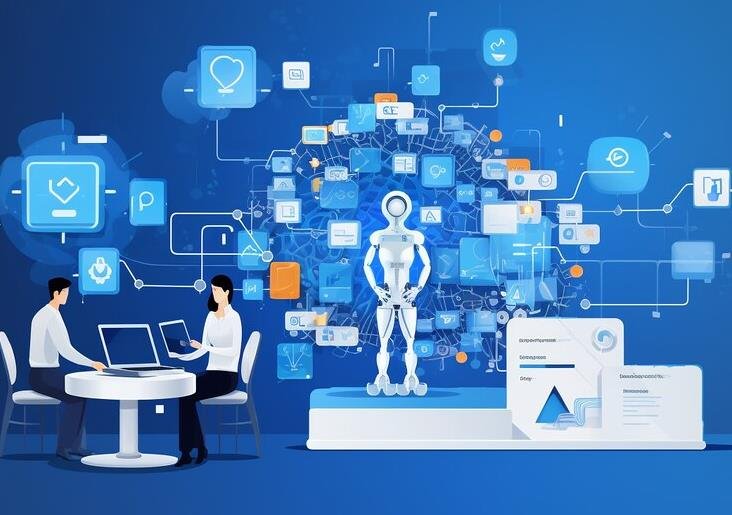Artificial Intelligence is transforming the banking and capital markets sectors, but experts emphasize the importance of keeping humans at the heart of this technological revolution. In a recent session, Y. Abiodun Akinnusi led discussions with participants from Nigeria and Ghana, shedding light on the balance between AI advancements and human roles.
Humans and AI: A Collaborative Future
Y. Abiodun Akinnusi kicked off the discussion by addressing the critical intersection of AI and human involvement in banking. He posed a thought-provoking question: Will AI make human roles obsolete, or can it enhance human potential? This set the tone for a deep dive into how AI can be an enabler rather than a replacer.
Akinnusi highlighted that while AI can significantly boost productivity and creativity within banks, its true success lies in harmonizing with human needs and organizational culture. “AI isn’t here to take over,” he explained, “but to empower us to achieve more.”

Enhancing Productivity Without Losing the Human Touch
AI offers remarkable opportunities to streamline operations and improve efficiency in the banking sector. Akinnusi shared insights on how AI-driven tools can handle repetitive tasks, allowing human employees to focus on more strategic and creative endeavors. This shift not only enhances productivity but also job satisfaction among employees.
However, he cautioned that the implementation of AI must be thoughtful. It’s essential to ensure that technology serves as a tool to support human workers rather than replace them. This balance is crucial for maintaining a positive workplace environment and fostering innovation.
Key Benefits of AI in Banking
- Automated Customer Service: Chatbots and virtual assistants can handle routine inquiries, freeing up human agents for more complex issues.
- Fraud Detection: AI systems can analyze vast amounts of data to identify suspicious activities in real-time.
- Personalized Banking: AI enables banks to offer tailored financial products and services based on individual customer behavior and preferences.
These benefits illustrate how AI can complement human efforts, making banking services more efficient and customer-friendly.
Aligning AI with Organizational Culture
One of the main points Akinnusi emphasized was the importance of aligning AI initiatives with the existing organizational culture. He argued that technology should enhance, not disrupt, the core values and practices of a financial institution. This alignment ensures that AI implementations are not only effective but also sustainable in the long run.
Akinnusi also stressed the need for continuous training and development. As AI tools evolve, so must the skills of the workforce. Investing in employee education ensures that staff can effectively collaborate with AI technologies, leading to better outcomes for both the organization and its customers.
Navigating the Challenges of AI Integration
While the potential of AI in banking is vast, integrating it into existing systems comes with its own set of challenges. Akinnusi discussed several obstacles that financial institutions might face, including data privacy concerns, the high cost of implementation, and the need for robust cybersecurity measures.
To overcome these challenges, he recommended a phased approach to AI integration. Starting with pilot projects allows banks to test and refine AI applications before a full-scale rollout. Additionally, fostering a culture of transparency and ethical AI use can help build trust among stakeholders and customers alike.
The Road Ahead: Balancing Innovation with Humanity
As AI continues to evolve, the future of banking will undoubtedly be shaped by the synergy between technology and human expertise. Akinnusi concluded the session by reiterating the importance of keeping humans at the center of AI integration. By doing so, banks can leverage AI to drive innovation while maintaining the personal touch that customers value.
The collaboration between tech experts and banking professionals is paving the way for a more dynamic and responsive financial sector. As AI technologies advance, the focus remains on enhancing human capabilities and creating a more inclusive and efficient banking environment.








